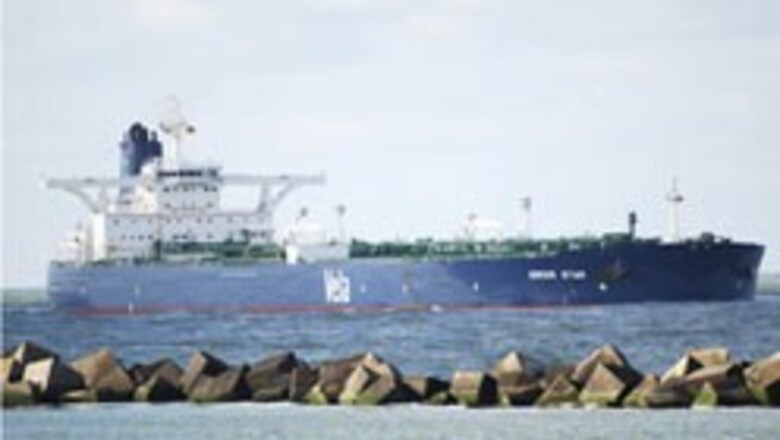
views
Mogadishu: Dozens of Somali Islamist insurgents entered a port today in search of the pirate group behind the seizure of a Saudi supertanker that was the world's biggest hijack, a local elder said.
Separately, police in the capital Mogadishu said they ambushed and shot dead 17 Islamist militants, in the latest illustration of the chaos in the Horn of Africa country that has fuelled a dramatic surge in piracy.
The Sirius Star -- a Saudi vessel with $ 100 mln oil cargo and 25-man crew from the Philippines, Saudi Arabia, Croatia, Poland and Britain -- is believed anchored offshore near Haradheere, about half-way up Somalia's long coastline.
'Saudi Arabia is a Muslim country and hijacking its ship is a bigger crime than other ships,'' Sheikh Abdirahim Isse Adow, an Islamist spokesman, told Reuters. ''Haradheere is under our control and we shall do something about that ship,'' he said.
Both the US Navy and Dubai-based ship operator Vela International said they could not confirm media reports that the hijackers were demanding a $25 mln ransom.
That would be the biggest demand to date by pirates who prey on boats in the Gulf of Aden and Indian Ocean off Somalia.
An upsurge of attacks this year has forced up shipping insurance costs, made some firms go round South Africa instead of via the Suez Canal, brought millions in ransom payments, and prompted an international naval response.
In Mogadishu, police said they laid in wait and shot dead 17 fighters from the militant al Shabaab insurgent group during an attempted attack on a senior official.
The Islamist rebels have been fighting the government and its Ethiopian military allies for about two years. They launch near-daily guerrilla strikes in the capital and control most of south Somalia, including a town just nine miles (14 km) to the south of Mogadishu.
Islamist leaders deny allegations they collude with pirates and insist they will stamp down on them if they win power, citing a crackdown when they ruled the south briefly in 2006.
Some analysts, however, say Islamist militants are benefiting from the spoils of piracy and arms shipments facilitated by the sea gangs. Analysts also accuse government figures of collaboration with pirates.
The elder in Haradheere port told Reuters the Islamists arrived wanting to find out immediately about the Sirius Star, which was captured on Saturday about 450 nautical miles off Kenya in the
pirates' furthest strike to date.
''The Islamists arrived searching for the pirates and the whereabouts of the Saudi ship,'' said the elder, who declined to be named. ''I saw four cars full of Islamists driving in the town from corner to corner.'' ''The Islamists say they will attack the pirates for hijacking a Muslim ship,'' he said.
In Mogadishu, al Shabaab gunmen drove to the home of the local Madina district chairman early in the morning, but found police officers lying in wait, witnesses and authorities said.
''We got information before they left their hideouts and so we were able to surround them,'' said police spokesman Abdullahi Hassan Barise. ''Thirteen of the dead bodies lie in the street near the chairman's house.''
Residents said the al Shabaab fighters wore black scarves round their heads with Arabic script reading ''God is great''.
Somalis are traditionally moderate Muslims, and analysts say al Shabaab -- which Washington has listed as a foreign terrorist organisation with close links to al Qaeda -- does not have deep popular support, despite having the upper hand militarily.
Somalia has been without effective central government since the 1991 toppling of a military dictator by warlords.The capture of the Sirius Star has caused panic around the world, with the rampant piracy threatening to become a further drag on trade at a time of global economic downturn.
Kenya's Foreign Minister Moses Wetangula summoned foreign ambassadors in Nairobi to appeal for their countries to exert all efforts to end the menace. ''Act now and not tomorrow,'' he said.
Wetangula also called Somali government leaders, whose bickering is hampering a UN-brokered peace process, to return home to tackle piracy instead of staying in neighbouring Kenya.
Visiting Ethiopia, French Foreign Minister Bernard Kouchner was asked about piracy. ''Somalia, it's a burden. More than a burden, it's a very heavy preoccupation,'' he said.



















Comments
0 comment